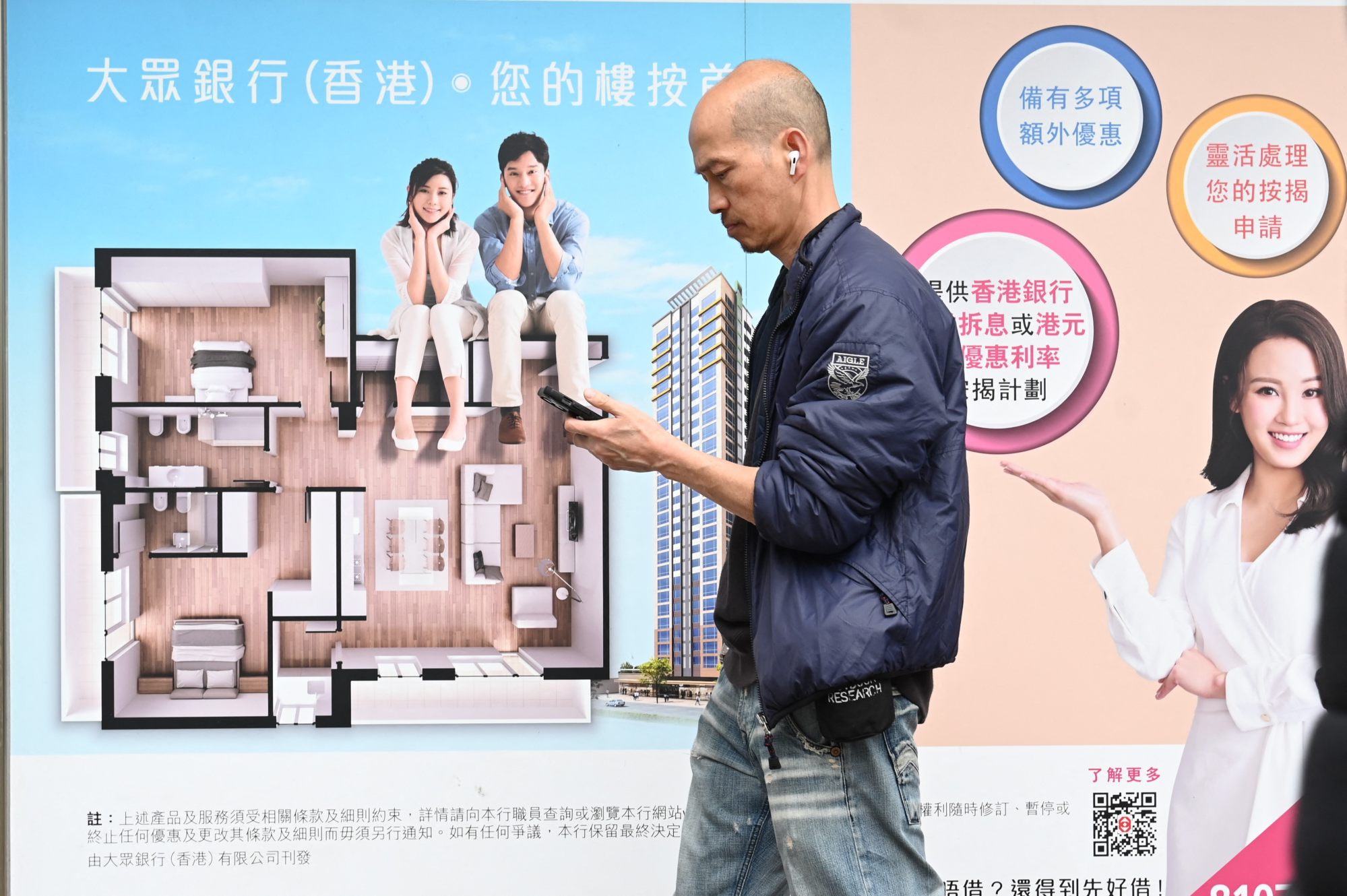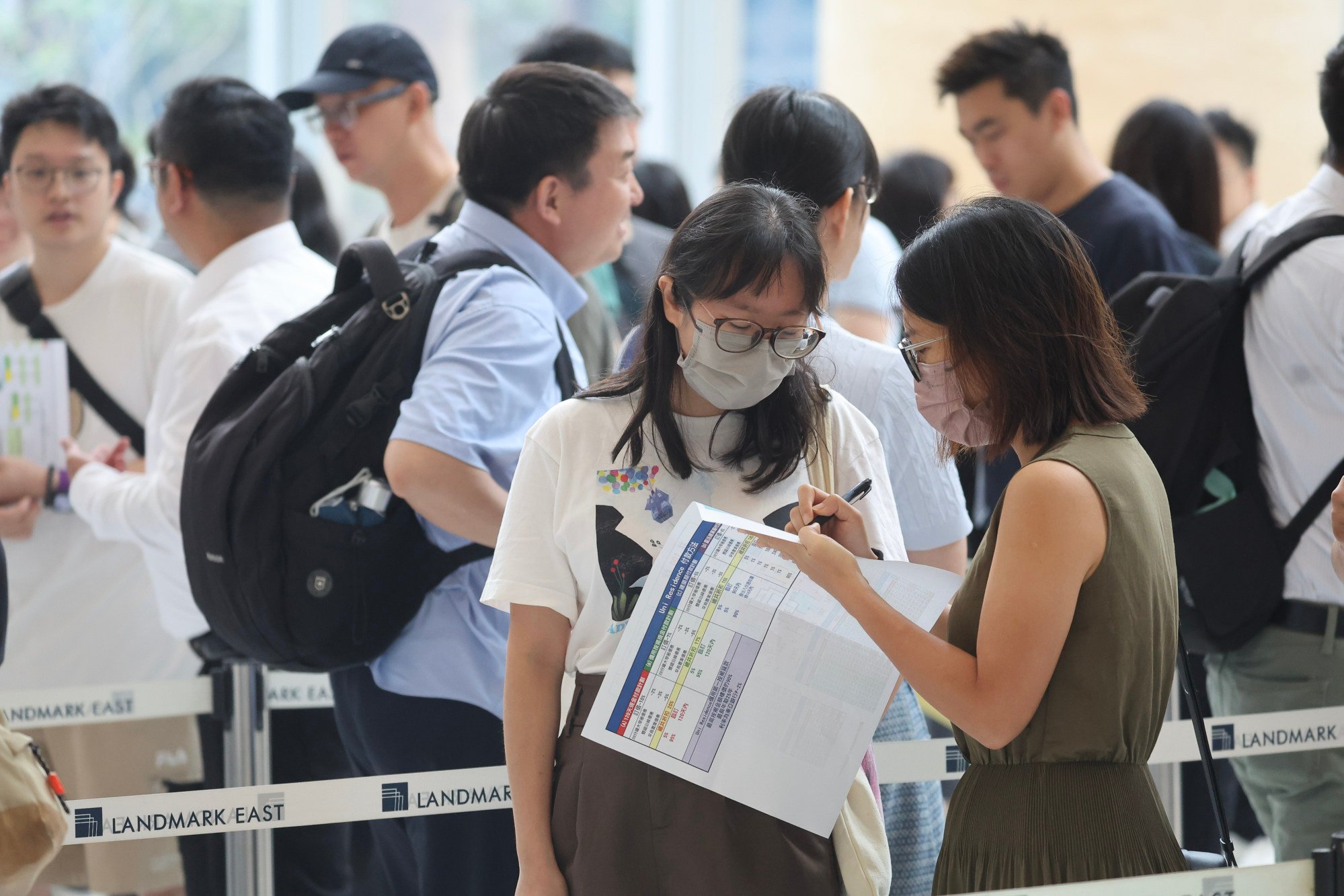Hong Kong requires all assistance possible. Starting in 2018, the region faced consecutive setbacks, hindering substantial recuperation and raising worries regarding its status as an international finance hub.
Given its role as an importer of U.S. monetary policies and its strong alignment with mainland China’s economy, Hong Kong has become the most significant victim of the growing economic and policy differences between the globe’s two leading economies. This situation has reignited debates regarding whether the city remains appropriate for these conditions. currency peg to the US dollar.
However, in recent months, a combination of internal and external elements has provided Hong Kong with a crucial boost. escalation regarding the U.S.-China trade conflict and the damage The United States' safe-haven status has bolstered Hong Kong's markets, partly by reinforcing the city's position as the premier offshore center for equity financing of mainland Chinese firms.
Are you looking for insights into the most significant issues and developments globally? Find your answers here. SCMP Knowledge Our latest platform offers carefully selected content including explainers, FAQs, analyses, and infographics, all provided by our prestigious team.
So far this year, proceeds from initial public offerings and secondary share sales in Hong Kong have amounted to $26.5 billion, up significantly from $3.8 billion during the corresponding timeframe last year, according to Bloomberg data. Last year, former Morgan Stanley Asia chairman Stephen Roach stated that regarding Hong Kong was "over" Partly due to the escalation of tensions between the U.S. and China, the city was stated last week to be thriving as mainland China’s “most crucial gateway for global finance.”
Moreover, the significant decline in the value of the US dollar following US President Donald Trump's inauguration, along with heightened worries regarding the security of American assets, compelled the Hong Kong Monetary Authority to take action. intervene aggressively to stop the Hong Kong dollar from going above the higher limit of its trading range compared to the US dollar.
Through a massive injection of liquidity due to an increase in investments flowing into the stock market, the HKMA caused interbank interest rates to fall. The one-month and three-month HIBOR, which act as reference rates for the majority of home mortgages and business loans, have decreased to 0.6% and 1.7%, respectively. three-year low .

The significant decrease in lending rates has reduced the difference between Hong Kong’s economy, largely influenced by mainland China, and its monetary policies led by the United States. Additionally, Bank of America mentions that investor interest in carry trades—taking advantage of the interest rate disparity between the low-interest Hong Kong dollar and the high-interest U.S. dollar—is minimal. This is partly because of the pessimistic view on the future of the U.S. dollar, potentially leading to HIBOR staying low for an extended period.
The drop in interbank rates has boosted the property market. According to a report released on May 22, following the decline of the one-month Hibor below 1%, CBRE noted that the actual mortgage rate had dropped under 2.4%. This led to a positive carry—the gap between rental yields and effective mortgage rates—for the majority of properties.
"The restart of a positive carry for homes since May signifies a significant shift. Should this trend continue, the market might experience an upturn in both property values and sales numbers, as borrowing costs could become lower than rental expenses," according to CBRE.
On May 30, HSBC reported that following the significant decline in Hibor, "support for the property market may increase as borrowers adjust their mortgage rate expectations." Additionally, the bank noted that equity investors were paying closer attention to the consequences of the steep decrease in Hibor rather than focusing on the effects of elevated trade tariffs.
The numerous reports from investment banks regarding Hong Kong’s short-term lending rates indicate that the drop in Hibor has more significant implications for financial markets than it does for the city’s real estate industry.
Initially, Hong Kong's interbank rates might rise once more if the "sell America" trade reverses or if a potential US-China trade agreement becomes more probable, which could reduce interest in the region’s equities.
Furthermore, according to a report from JPMorgan issued on May 20, "there is a relatively weak empirical connection between interest rates and loan growth, suggesting that funding expenses do not solely dictate" the dynamics of Hong Kong’s real estate sector. The bank explained, "In Hong Kong, where the financial system heavily revolves around property, expectations for the housing market significantly influence lending choices."
Secondly, the basics of property are crucial. The housing sector is grappling with severe supply-and-demand mismatches. In the previous quarter, there were numerous unsold new first-hand apartments in finished projects. reached 28,000 , setting a new record. Approximately 105,000 units are projected for delivery within the coming four years. According to Moody’s Analytics, the supply is anticipated to substantially exceed demand during the next 12-18 months, putting downward pressure on prices that haven’t rebounded since dropping 29 percent from their peak in August 2021.

Thirdly, a quick look at the most recent set of data highlights the gravity of the challenges confronting Hong Kong’s residential and commercial real estate sectors. In last month’s statistics, deals were recorded across various segments including new and secondary homes, office spaces, retail premises along main streets, industrial properties, and car park lots. fell 11 per cent on a monthly basis.
Currently, the city’s office market is experiencing an all-time high vacancy rate of 17.5 percent due to excess supply and continuous decreases in rental prices. Additionally, Hong Kong’s commercial property investment sector has significantly contracted during recent years. Data from MSCI indicates that in Q1 2025, Hong Kong failed to rank within the top ten most active trading hubs for commercial real estate across Asia.
Hong Kong's stock market has rebounded strongly, coinciding with a significant drop in HIBOR due to the weakening U.S. dollar. These factors have boosted morale during this crucial period for the region; however, the fundamental issues plaguing the real estate sector continue to be severe.
More Articles from SCMP
'Adorable offspring': Japanese father invests $700,000 to showcase his child's pictures online for global adoration
Students from Hong Kong planning to apply for U.S. colleges are recommended to review their social media profiles.
Malaysian Cartoonist Vows to Sue Anwar’s Administration Over 'Travel Ban'
The film "How to Train Your Dragon" has been reviewed as a live-action adaptation that falls short compared to the 2010 animated version.
The article initially appeared on the South China Morning Post (www.scmp.com), which is the premier source for news coverage of China and Asia.
Copyright © 2025. South China Morning Post Publishers Ltd. All rights reserved.
Post a Comment